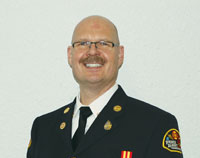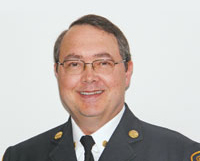
Features
Leadership
Leadership Forum: September 2014
We can’t help but reflect on our careers, the adventures we have enjoyed and how we have been privileged to serve our communities.
August 28, 2014
By Les Karpluk and Lyle Quan
We can’t help but reflect on our careers, the adventures we have enjoyed and how we have been privileged to serve our communities. Some may argue that when you retire from the profession you become a has-been, but we vehemently disagree. In fact, today, our passion to continue to work with fire-service organizations has not dwindled one iota.
We have studied leadership, management, strategic planning, team development, and, after a year of hard work, we wrote Leadership Prescribed – A Handbook for Fire Service Leaders.
We have presented jointly and individually at many fire and emergency-services conferences. It’s by doing these presentations, writing these columns and networking that we find out just how many of our present leaders will be retiring and how many up-and-coming leaders are looking for support and mentoring.
As two retired fire chiefs with a combined total of more than 62 years in our great profession, we believe our new role will entail mentoring and coaching existing and future fire service leaders.
Successful leaders understand that only through developing themselves can they succeed in developing others and their fire departments.
We are going to look at seven key steps for developing personal excellence:
Step 1: Create your own mission statement – who are you and what do you want to emulate and achieve as a leader? Make it simple, live it every day, and use it to master your leadership growth.
Step 2: Develop your own strategic plan – look ahead five years and identify what you want to accomplish. Develop some key tasks that will help you to achieve your plan. You must write this down. If you do not write down your strategic goals you will never achieve them. Jump on the education bandwagon when you see a promotional opportunity in the future.
Step 3: Search out a mentor. There are simply too many questions and obstacles to take the journey without a mentor. Your mentor can be a businessperson in your community, or, in the best-case scenario, a fire chief (or senior fire officer) who has been there, done that.
You do not want your mentor to give you the answers; you want your mentor to help you discover the answers.
Step 4: Live your mission statement every day, not just during work hours. You are who you are, so stop trying to pretend to be somebody else. Yes, you may be vulnerable, but your personal mission statement is also a reflection of you. Follow it, live it, and lead by example. Your team is watching all the time!
Step 5: Search out opportunities to become a larger contributor to your community. This will create a more vibrant networking group and, more importantly, it will help you grow as a person and a leader. You can’t go wrong when you get involved in your community.
Step 6: Your personal strategic plan must be flexible and it is imperative for you to conduct a regular self-assessment of what you have accomplished in your strategic plan – what still needs to be accomplished and how you will get there. Remember, changing and/or adjusting as needed is OK and, in many cases, is a must.
Step 7: The goal shouldn’t be the destination. This may sound paradoxical, but the most important thing here is to enjoy the journey. It is through the journey that we grow and mature as people and leaders. You will stumble, feel as if you have been defeated, and even fail along the way. But these events can shape your character and help you grow to heights that you would never have experienced unless you stumbled and failed. It is by stumbling and failing that you grow into mastering your leadership craft.
Napoleon Hill said that “Before success comes in any man’s life, he’s sure to meet with much temporary defeat and, perhaps some failures. When defeat overtakes a man, the easiest and the most logical thing to do is to quit. That’s exactly what the majority of men do.”
It’s how you meet future challenges that will dictate to you and others what kind of a leader you are, so learn from each experience and take advantage of having a mentor and a strong circle of support from others in the fire service. Don’t quit.
Achieving and maintaining personal excellence is a lifelong journey; there is no actual finish line. As you grow it is imperative that you share what you have learned with others. Before you know it, your retirement will be upon you and others will seek you out for advice.
 |
 |
Les Karpluk is the fire chief of the Prince Albert Fire Department in Saskatchewan. Lyle Quan is the fire chief of Waterloo Fire Rescue in Ontario. Both are graduates of the Lakeland College Bachelor of Business in Emergency Services program and Dalhousie University’s Fire Service Leadership and Administration program. Contact Les at l.karpluk@sasktel.net and follow him on twitter at @GenesisLes. Contact Lyle at lyle.quan@waterloo.ca and follow him on twitter at @LyleQuan.
Print this page